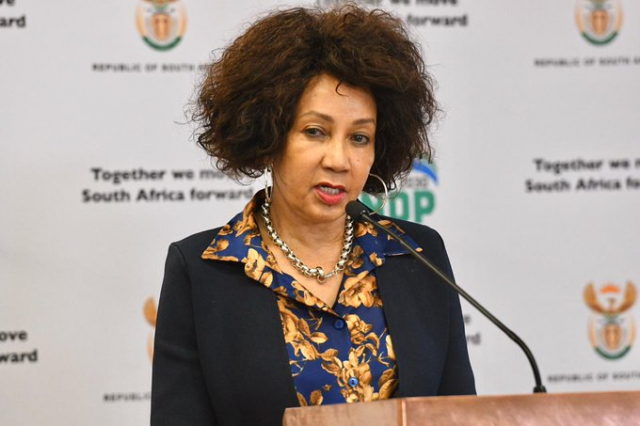
Parcels of Land Identified for People in Informal Settlements to Ease ‘Congestion’
The South African Government has identified 17 land parcels for resettlement purposes for people who stay in informal settlements should the need arise, as the country deals with the spread of COVID-19. “Of these, 13 land parcels are state-owned and four pieces of land parcels are privately owned. We have already started preparing some areas […]

The South African Government has identified 17 land parcels for resettlement purposes for people who stay in informal settlements should the need arise, as the country deals with the spread of COVID-19.

“Of these, 13 land parcels are state-owned and four pieces of land parcels are privately owned. We have already started preparing some areas for resettlement,” Minister of Human Settlements, Water and Sanitation Lindiwe Sisulu said.
Addressing a media briefing on Saturday in Tshwane, the Minister said government has identified 29 densely populated informal settlements across the country.
“These informal settlements have a high propensity for the spread of COVID-19 and the spread could get out of control and we could find ourselves overwhelmed if we don’t do something as a matter of urgency. As such we have decided that we need to resettle some of the residents to ease congestion,” Sisulu said.
Globally there are 629,355 confirmed cases of COVID-19 in 202 countries with 28,963 confirmed deaths, according to Worldometers (which compiles graphs based on the most recent data from public health authorities). So far there has only been one coronavirus death in South Africa.
She said the threat and risk of the spread of the Coronavirus in the informal settlements is very real.

“I’m sure some of you have seen the news of what has happened in other countries when the spread of COVID-19 gets out of control. We have to do everything we can to ensure that the same scenarios do not occur here,” the Minister said.
Sisulu called on all water licence users to assist their nearby communities to refill the water tanks being used.
“Work with our local municipalities to ensure that we constantly have enough water in our tanks. While it remains our responsibility as government to provide basic services to our communities, the situation we currently find ourselves in calls for us to do things differently,” she said.
The Minister urged borehole drilling companies across the country to extend a helping hand to communities who are in desperate need of water.
Municipalities have been requested to take full responsibility of taking care of water tanks.
